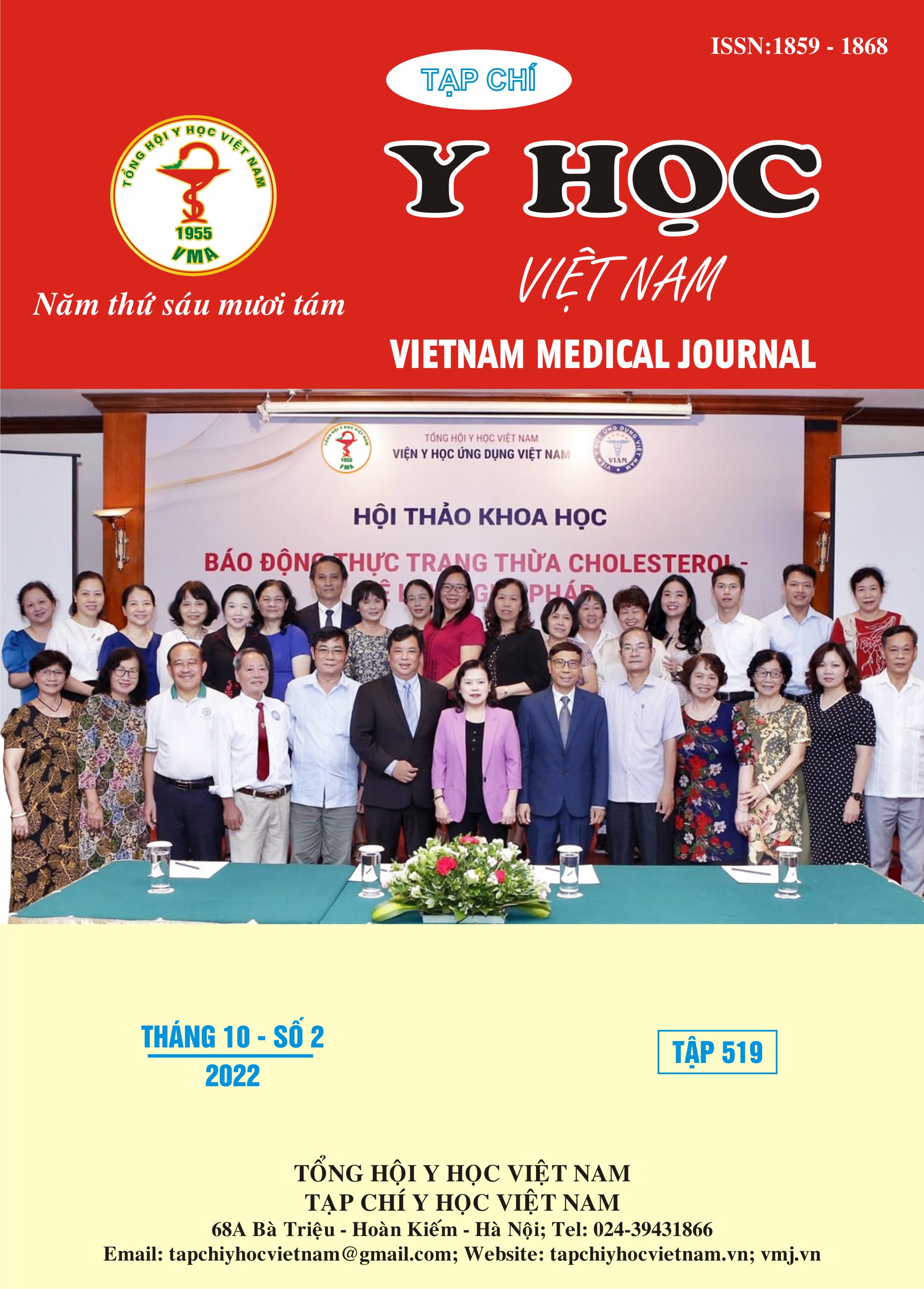KNOWLEDGE AND VOLUNTARY ATTITUDE OF MEDICAL STUDENTS OF CAN THO UNIVERSITY OF MEDICINE AND PHARMACY IN THE PREVENTION OF COVID-19 PANDEMIC
Main Article Content
Abstract
Background: To reduce mortality and slow down the severity of the COVID-19 pandemic, safe vaccination is recommended by WHO. Objective: To survey the attitude and practice of COVID-19 vaccination among students of Can Tho University of Medicine and Pharmacy (CTUMP). Materials and methods: A cross-sectional descriptive study in 892 students studying at CTU from June 2021 to September 2021. Results: 516/892 (57.8%) have a worried attitude about COVID-19 vaccination. Characteristics of gender and course were determined to be statistically significant with an anxiety rate, p-values of 0.006 and 0.04, respectively. The cause of concern about vaccination mainly came from news in the media (40.6%) and personal doubts about whether it was effective or safe to inject (35.4%). Besides, up to 92.9% of students had an attitude of believing that vaccines were safe and had some side effects; 57.5% of students had an attitude of believing that vaccines can protect against COVID-19 infection. The percentage of students willing to get the COVID-19 vaccine for the first, second and second time was very high (≥95%), and 92.3% of students agreed to report side effects of the vaccine to staff. medical after injection. Conclusion: More than 50% of students of CTU were worried about getting vaccinated against COVID-19 but the percentage of students willing to get vaccinated against COVID-19 was very high, from 95% to 99.1%.
Article Details
Keywords
COVID-19, CTUMP, student
References
2. Iacoella C., Ralli M., Maggiolini A., Arcangeli A., Ercoli L. Acceptance of COVID-19 vaccine among persons experiencing homelessness in the City of Rome, Italy. Eur Rev Med Pharmacol Sci. 2021;25(7):3132–3135.
3. Kaya, M. O., Yakar, B., Pamukçu, E., Önalan, E., Akkoç, R. F., Pirinçci, E., Gürsu, M. F. (2021), Acceptability of a COVID-19 vaccine and role of knowledge, attitudes and beliefs on vaccination willingness among medical students. European Research Journal, 7(4):417-424.
4. Kozak, A., & Nienhaus, A. (2021). COVID-19 vaccination: Status and willingness to be vaccinated among employees in health and welfare care in Germany. International Journal of Environmental Research and Public Health, 18(13), 6688.
5. Samanta, S., Banerjee, J., Kar, S. S., Ali, K. M., Giri, B., Pal, A., & Dash, S. K. (2022). Awareness, knowledge and acceptance of COVID-19 vaccine among the people of West Bengal, India: a web-based survey. Vacunas.
6. Samanta, S., Banerjee, J., Kar, S. S., Ali, K. M., Giri, B., Pal, A., & Dash, S. K. (2022). Awareness, knowledge and acceptance of COVID-19 vaccine among the people of West Bengal, India: a web-based survey. Vacunas.
7. Tran B.X, Nguyen H.T., Le H.T., et al. (2020), Impact of COVID-19 on Economic Well-Being and Quality of Life of the Vietnamese During the National Social Distancing. Front Psychol;11:565153.


